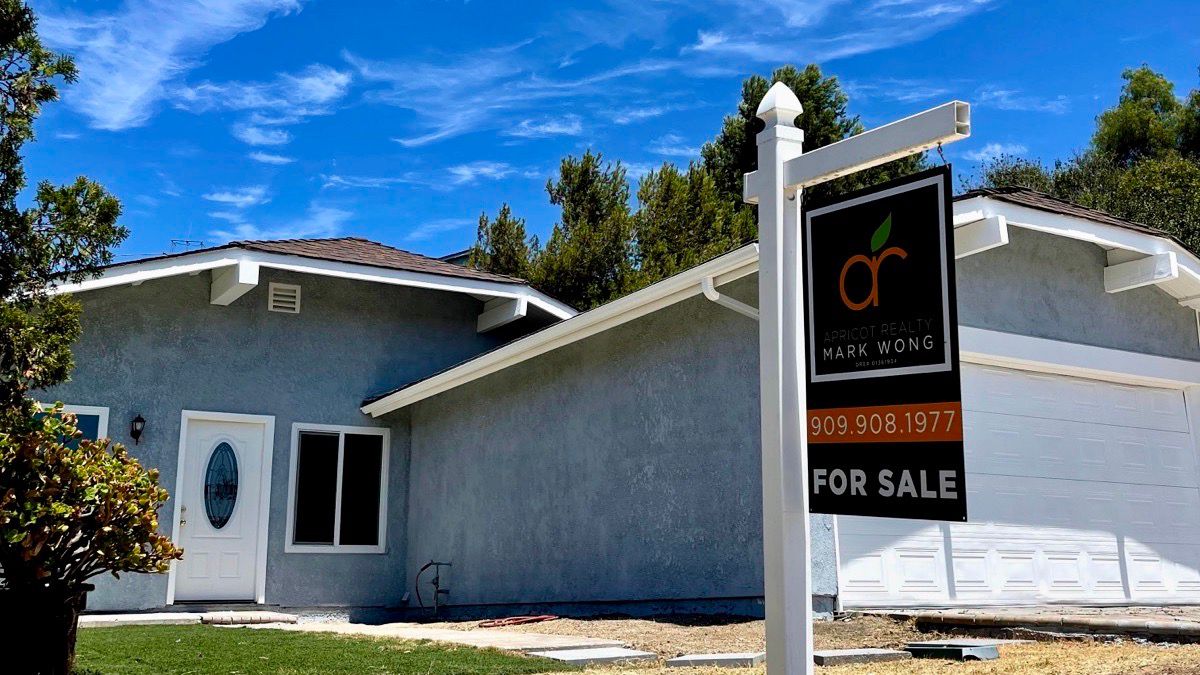ANAHEIM, Calif. — When Mark Wongcharoensuk listed a condominium in a prime area of Westwood in April, he thought the 2,000-square-foot home would sell within a few days.
After the first open house, he received no offers. It sat on the market, still nothing.
Wongcharoensuk, the president of Apricot Realty in Chino Hills, had to drop the price from $1.25 million to $1.12 million before it finally found a buyer — a month after listing the three bedroom, three-bathroom condo.
“That’s when I knew the market was shifting,” said Wongcharoensuk, adding that comparable condos in the area sold for more during the coronavirus pandemic.
When the pandemic arrived two years ago, there was a run-up of buyers snatching up homes left and right, driving up prices, and demand soared with fewer homes in the market and low mortgage rates.
But those days of bidding wars and quick closings appear to be over, real estate agents lament.
Recent reports show that for-sale housing inventory is rising across Southern California, homes are staying in the market longer, and buyer demand has dropped because of surging mortgage rates and rising inflation.
According to Reports on Housing, after starting the year with historically low inventory, in Orange County, housing inventory reached the 3,000 mark in May for the first time since Dec. 2020. In Riverside, housing stock soared to 4,100 homes for the first time since Nov. 2020. In Los Angeles, inventory rose 11% in the past couple of weeks to over 8,500 homes in the market.
“Muted demand has allowed the active inventory to climb rapidly since the start of April, adding 1,507 homes, nearly doubling in just a couple of months,” wrote Steven Thomas, an economist at Reports on Housing, a real estate data site that analyzes Southern California’s housing market. “Open house directional arrows now adorn busy intersections, and it is now common to see the same open house for multiple weekends in a row. That was unheard of just a few months ago.”
Mortgage Daily News reported that as of Tuesday, the mortgage rate for a 30-year fixed rate loan was at 6.28%, a 3% jump from January.
With the Federal Reserve meeting this week, most experts expect them to continue their aggressive stance in tempering soaring inflation, which is at a 40-year-high, by raising interest rates again.
When you put all those factors together, along with a possible looming recession, agents said that housing affordability is becoming a significant issue for prospective homebuyers.
It’s no wonder that a recent Fannie Mae Home Purchase Sentiment Index survey found that nearly 80% of prospective homebuyers said: “that it’s a bad time to buy a home.”
“Consumers’ expectations that their personal financial situations will worsen over the next year reached an all-time high in the May survey, and they expressed greater concern about job security,” said Doug Duncan, a senior vice president, and chief economist at Fannie Mae. “These results suggest to us that increased mortgage rates, high home prices, and inflation will likely continue to squeeze would-be homebuyers — as well as those potential sellers with lower, locked-in mortgage rates — out of the market, supporting our forecast that home sales will slow meaningfully through the rest of this year and into next.”
Wongcharoensuk said if you compared the monthly payment for an $800,000 loan at 3% last year to one at today’s 6% price, the buyers today would pay more than $1,000 more monthly.
“They are going from roughly $3,400 to $4,500 a month,” he said. “With inflation, everything is getting more expensive.”
Francis De Castro, a real estate agent at the Keller Williams office in Los Feliz, said that with rates “rising as fast they can,” he’s been calling his clients’ loan agents to ensure they are pre-approved for their price range.
“I’m making sure all of their prequalifications are updated, all the numbers are correct, and they are still within the range they want to be,” said De Castro. “If they want to get into a home, time is of the essence right now.”
The sharp decline in the stock market has also affected some buyers’ ability to buy a home.
De Castro said he had a client who planned to pull a significant chunk of money from her stock portfolio as a down-payment for a house. But when the stock market dropped, her financial adviser said she lost some of her nest egg.
“They told her to get a loan,” said De Castro.
While the housing market cools, many agents say there is a silver lining.
During the pandemic, some homebuyers settled for any home they could purchase. Those with the qualifications, with more homes entering the market, have a wider selection.
“It won’t be hectic as COVID,” said De Castro. “While there might be a lot of people at open houses, not many of them are probably going to make an offer.”
For Wongcharoensuk, he understands the real estate market comes in cycles. This is just the down cycle.
“Just be patient,” he said.



